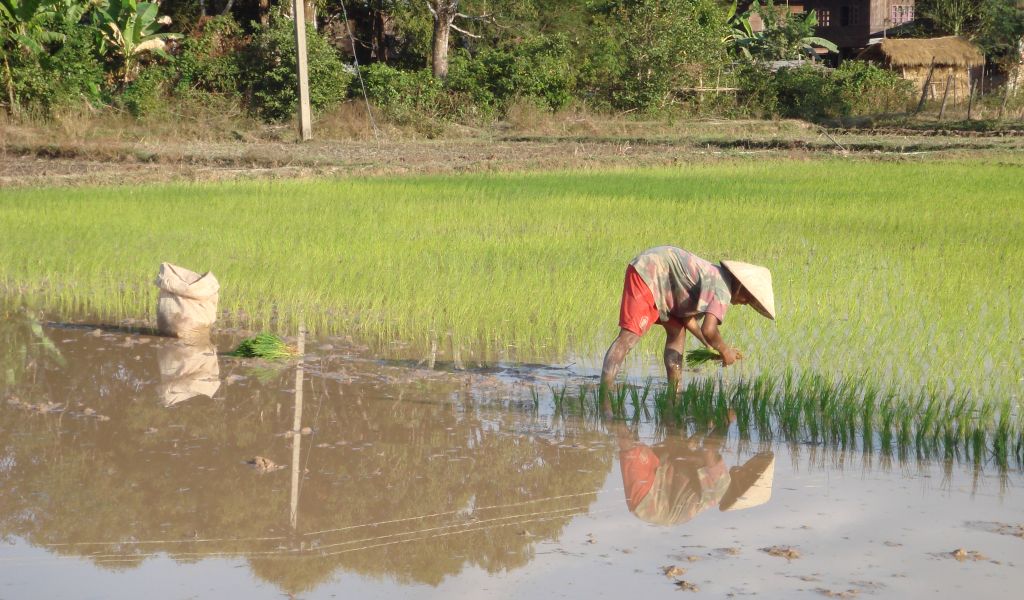Floods last year cause rice prices in Laos to double

The price of sticky rice in Laos keeps going up, resulting in rice that is two or even three times more expensive. "A 12-kilogram bag of sticky rice in the capital is now $13, up from $7 late last year”, states a rice trader from Vientiane Capital’s Xaysettha district. Another trader adds that "Good quality rice is now more than $10 a bag, but rice from [neighboring] Vietnam is a little bit cheaper". As a result of this upward movement of prices, poor Lao citizens are not able to buy local rice anymore.
The price hike is partly caused by floods in the most fertile (rice) areas of the country. However, not only the flooded areas are suffering from the increasing prices as it is noticeable in all provinces of Laos. This might be because the demand of the country remains constant, while overall supply is low. Besides, when the prices for one food are increasing, other foods might follow. To illustrate, "... the price of a chicken used to be $7 about a month ago, but since the swine flu outbreak it is now $7.60 per bird", as said by an official. The African swine flu epidemic seems to play a role in this, as this epidemic is pushing all the prices up.
The exact causes of the high rice prices are not known yet. Some say the prices increases are due to the floods only, while others say that Laos relies on imports too much. This is explained by a resident of Vientiane Capital: “Besides the flooding, the Thai baht is also up but the [Lao] kip is down”. Therefore, the devaluation of the kip seems to be a cause of the price increases as well. However, the impact of the flood itself is undeniable regardless the impact of secondary causes.
The rice prices are predicted to still be as high next year, as almost all of the central and southern provinces of Laos are currently being flooded. This probably endangers next year’s rice yields again.
Information source: RFA.
